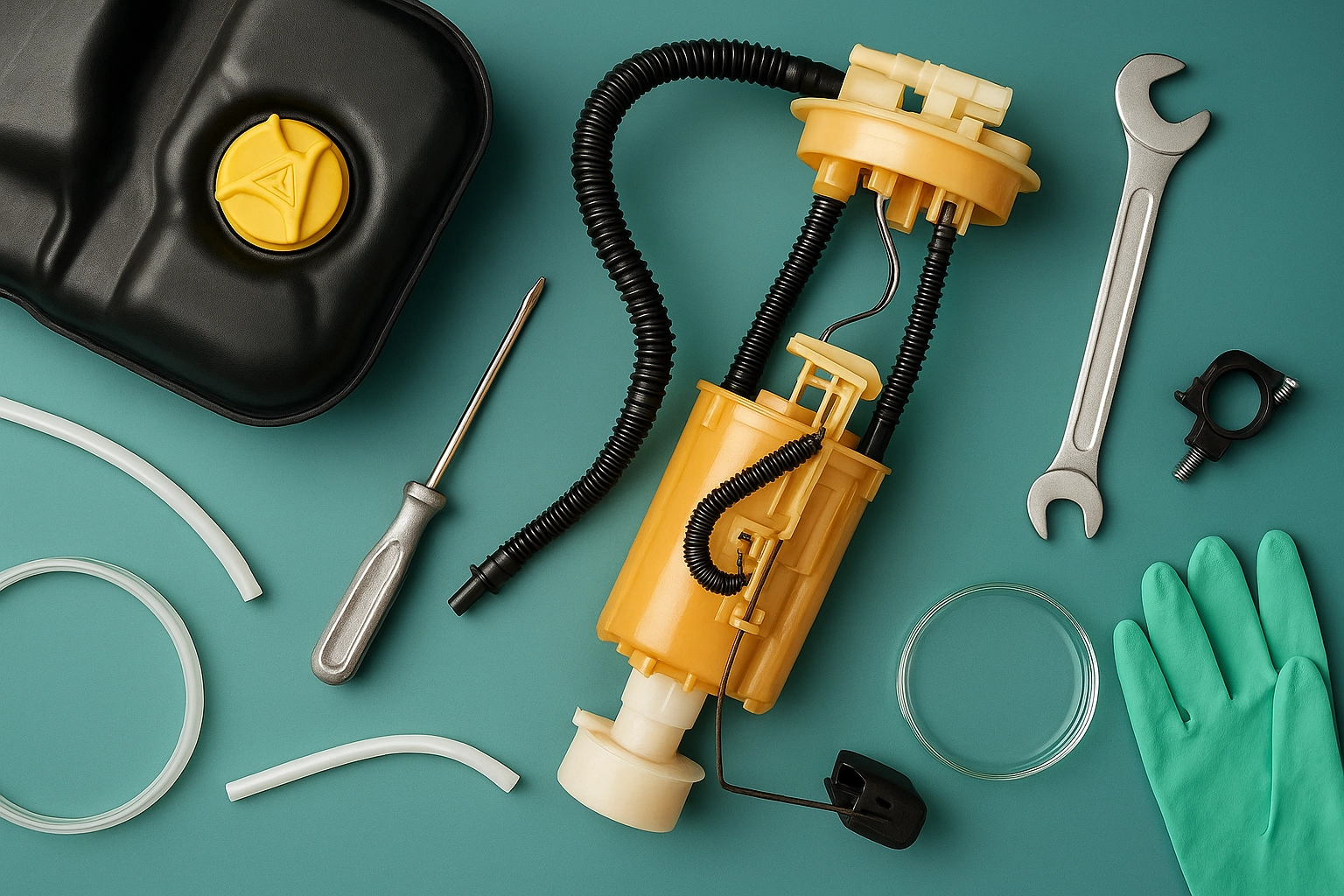ISO 19078 LPG Fuel Tank Multivalve Test
The ISO 19078 standard specifies requirements and methods for testing liquid petroleum gas (LPG) fuel tanks, including the integrity of the tank’s multivalve assembly. This service ensures that the fuel system meets stringent safety standards to prevent leaks and ensure reliable performance in automotive applications.
During the test, various parameters are monitored using precision instruments such as pressure gauges and leak detectors. The process involves filling the LPG fuel tank with gas under controlled conditions and then applying a series of tests to evaluate its integrity. These include checks for leaks at the multivalve connections, pressure retention over time, and overall structural soundness.
The test setup typically includes an automated system that can simulate real-world driving conditions, such as temperature variations and stress on the fuel tank during acceleration and deceleration. This ensures that any potential issues are identified before the vehicle reaches the market. The testing process is designed to meet or exceed the requirements specified in ISO 19078, ensuring compliance with international safety standards.
The service provided by our laboratory includes not only the execution of the test but also detailed reporting that outlines all findings and recommendations for improvements if necessary. Compliance with this standard is crucial for automotive manufacturers as it helps to ensure product safety and reliability in a highly regulated industry.
Our experienced team uses state-of-the-art equipment and follows rigorous protocols to ensure accurate results. The testing process is designed to identify any weaknesses or potential hazards early in the development cycle, thereby reducing costs associated with recalls and improving overall vehicle performance.
The ISO 19078 LPG Fuel Tank Multivalve Test is an essential service for automotive manufacturers who need to demonstrate compliance with international standards. By utilizing this service, companies can ensure that their products meet the highest safety and quality standards while also staying ahead of regulatory changes.
Applied Standards
The ISO 19078 LPG Fuel Tank Multivalve Test is designed to comply with international standards such as ISO 19078, which specifies the requirements and methods for testing liquid petroleum gas (LPG) fuel tanks. This standard ensures that the fuel system meets stringent safety criteria.
The test involves filling the LPG fuel tank with gas under controlled conditions and then applying a series of tests to evaluate its integrity. These include checks for leaks at the multivalve connections, pressure retention over time, and overall structural soundness. The testing process is designed to meet or exceed the requirements specified in ISO 19078.
| Standard | Description |
|---|---|
| ISO 19078 | Requirements and methods for testing LPG fuel tanks, including multivalve assemblies. |
Our laboratory adheres strictly to these standards to ensure accurate and reliable results. Compliance with ISO 19078 is crucial for automotive manufacturers as it helps to ensure product safety and reliability in a highly regulated industry.
Industry Applications
- Vehicular fuel system design and development
- Manufacturing quality assurance programs
- Regulatory compliance checks
- R&D for new automotive technologies
- Supplier certification and auditing
- Field service support for troubleshooting issues related to fuel systems
The ISO 19078 LPG Fuel Tank Multivalve Test is particularly beneficial for manufacturers of vehicles that use LPG as a fuel source. It helps ensure that the fuel system meets stringent safety standards, thereby enhancing product reliability and reducing the risk of leaks or other failures.
Automotive manufacturers can rely on this test to identify any weaknesses in their fuel systems early in the development cycle, allowing them to make necessary adjustments before production begins. This not only improves overall vehicle performance but also helps companies stay ahead of regulatory changes related to automotive safety and emissions control.
Use Cases and Application Examples
- Vehicular fuel system design and development
- Manufacturing quality assurance programs
- Regulatory compliance checks
- R&D for new automotive technologies
- Supplier certification and auditing
- Field service support for troubleshooting issues related to fuel systems
In practice, the ISO 19078 LPG Fuel Tank Multivalve Test is used by various stakeholders in the automotive industry. For example:
- A manufacturer may use this test during the design phase to ensure that their fuel system meets all required safety standards.
- A quality assurance team could rely on it as part of their ongoing manufacturing process to maintain consistent product quality.
- Regulators might employ this test when auditing vehicle manufacturers for compliance with international safety regulations.
- R&D departments can use the ISO 19078 LPG Fuel Tank Multivalve Test to explore new technologies that improve fuel efficiency and reduce emissions.
- Suppliers involved in automotive manufacturing could benefit from it as part of their certification process, ensuring they meet stringent quality requirements.
- A field service team might use this test when troubleshooting issues related to fuel leaks or other problems with the vehicle's fuel system.
The versatility and applicability of the ISO 19078 LPG Fuel Tank Multivalve Test make it an indispensable tool for maintaining product safety and reliability in the automotive industry.





